
Republicans say they may try to change Senate rules when they return from August recess to speed up confirmations
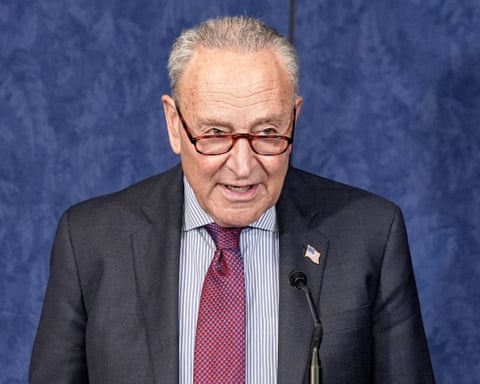
The US Senate left Washington DC on Saturday night for its monthlong August recess without a deal to advance dozens of Donald Trump’s nominees, calling it quits after days of contentious bipartisan negotiations and the president taking to social media to tell Senate Democratic leader Chuck Schumer to “GO TO HELL!”
Without a deal in hand, Republicans say they may try to change Senate rules when they return in September to speed up the pace of confirmations. Trump has been pressuring senators to move quickly as Democrats blocked more nominees than usual this year, denying any fast unanimous consent votes and forcing roll calls on each one, a lengthy process that can take several days per nominee.
“I think they’re desperately in need of change,” Senate Republican majority leader John Thune said of the chamber’s rules on Saturday after negotiations with Schumer and Trump broke down. “I think that the last six months have demonstrated that this process, nominations is broken. And so I expect there will be some good robust conversations about that.”

Schumer said a rules change would be a “huge mistake”, especially as Senate Republicans will need Democratic votes to pass spending bills and other legislation moving forward.
“Donald Trump tried to bully us, go around us, threaten us, call us names, but he got nothing,” Schumer said.
The latest standoff comes as Democrats and Republicans have gradually escalated their obstruction of the other party’s executive branch and judicial nominees over the last two decades, and as Senate leaders have incrementally changed Senate rules to speed up confirmations – and make them less bipartisan.
In 2013, Democrats changed Senate rules for lower court judicial nominees to remove the 60-vote threshold for confirmations as Republicans blocked then president Barack Obama’s judicial picks. In 2017, Republicans did the same for supreme court nominees as Democrats tried to block Trump’s nomination of justice Neil Gorsuch.
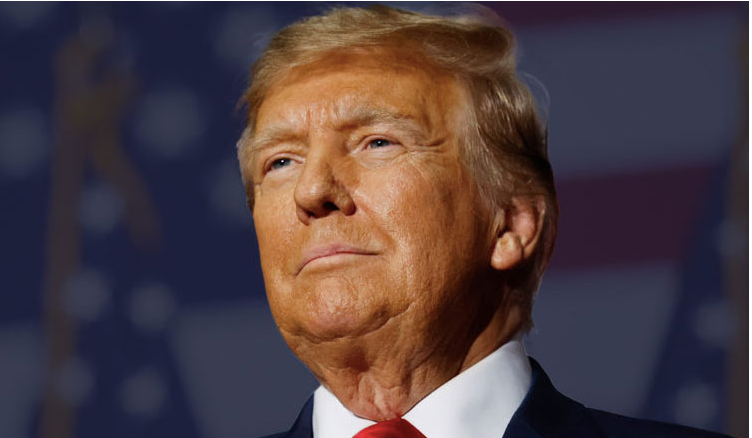
Trump has been pressuring Senate Republicans for weeks to cancel the August recess and grind through dozens of his nominations as Democrats have slowed the process. But Republicans hoped to make a deal with Democrats instead and came close several times over the last few days as the two parties and the White House negotiated over moving a large tranche of nominees in exchange for reversing some of the Trump administration’s spending cuts on foreign aid, among other issues.
The Senate held a rare weekend session on Saturday as Republicans held votes on nominee after nominee and as the two parties tried to work out the final details of a deal. But it was clear that there would be no agreement when Trump attacked Schumer on social media Saturday evening and told Republicans to pack it up and go home.
“Tell Schumer, who is under tremendous political pressure from within his own party, the Radical Left Lunatics, to GO TO HELL!” Trump posted on Truth Social.

Thune said afterward that there were “several different times” when the two sides thought they had a deal, but in the end “we didn’t close it out”.
It’s the first time in recent history that the minority party hasn’t allowed at least some quick confirmations. Thune has already kept the Senate in session for more days, and with longer hours, this year to try and confirm as many of Trump’s nominees as possible.
But Democrats had little desire to give in without the spending cut reversals or some other incentive, even though they too were eager to skip town after several long months of work and bitter partisan fights over legislation.
“We have never seen nominees as flawed, as compromised, as unqualified as we have right now,” Schumer said.
Trump and his allies mount a pressure campaign against US elections ahead of the midterms
A few weeks ago, Republican election officials in Colorado began receiving unsolicited calls and texts from a GOP consultant who said he was working with the Trump administration on “election integrity.”
In a text to one of the officials, the consultant, Jeff Small, indicated he was acting on a request from Stephen Miller, the White House deputy chief of staff. In a phone call with another clerk, Small said he was coordinating with the White House and the Justice Department to “implement” an elections executive order signed by President Donald Trump, recalled Justin Grantham, the top election official in Fremont County.
Grantham and Carly Koppes, who oversees elections in Weld County in northern Colorado, told CNN that Small made a specific request: Would they give a third party access to their election equipment?
Both declined.
“Not only is that a hard no, I mean, you’re not even going to breathe on my equipment,” Koppes said.
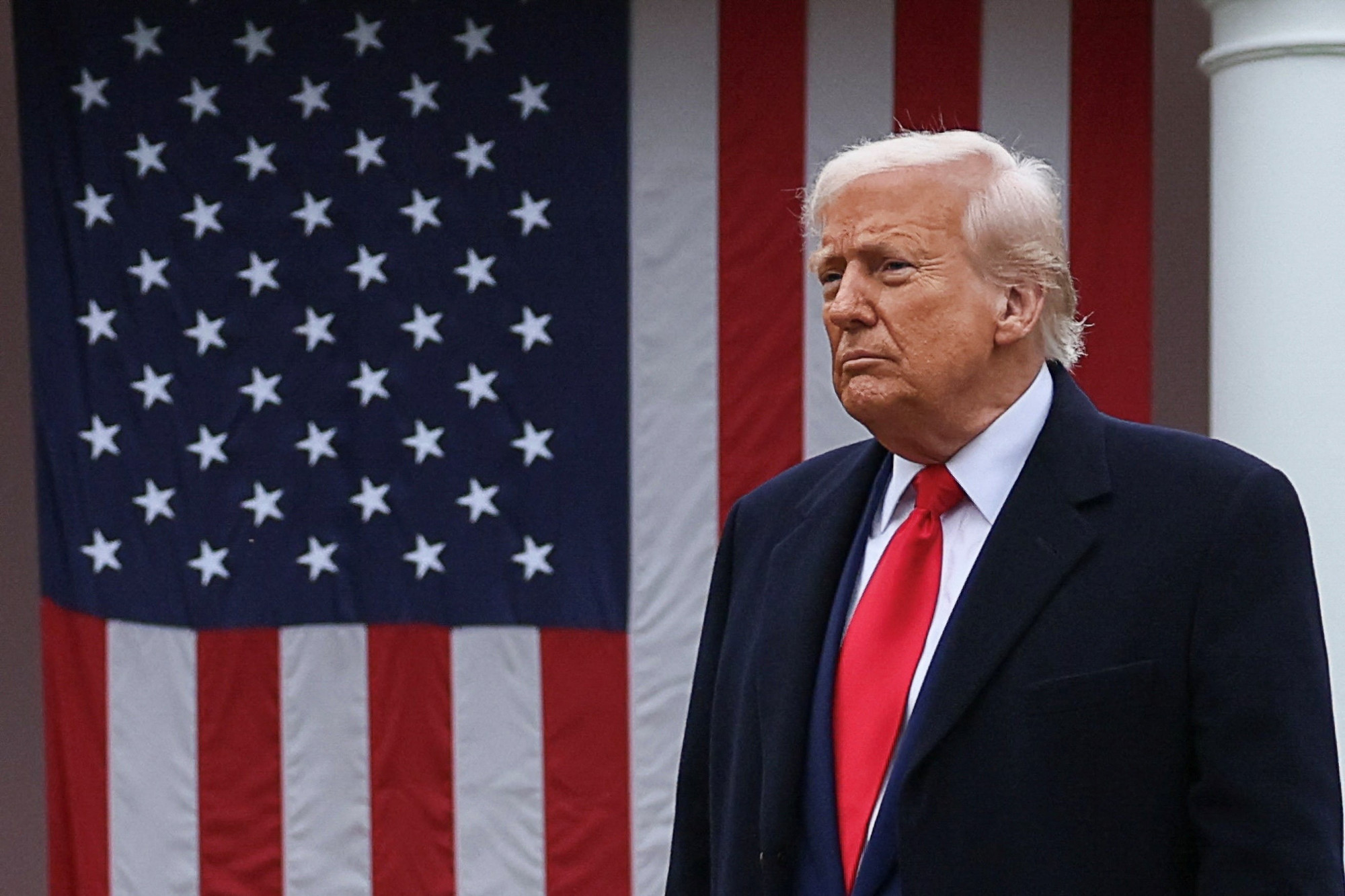
The outreach to the Colorado clerks is just one of a flurry of recent federal actions launched by the Trump administration and groups aligned with the president.
While the White House distanced itself from Small, Trump and his allies are collecting vast amounts of voter data and working to change the ground rules for next year’s midterms, often by invoking federal government authority.
Next year’s midterms hold enormous stakes for Trump and his opposition. Democrats need to net just three seats in the US House in 2026 to flip control of the chamber from Republicans. A Democratic-led House could block Trump’s legislative agenda and launch investigations of the president in the second half of his second term.
Samantha Tarazi, CEO of the nonprofit Voting Rights Lab, which has closely tracked state developments, said she believes Trump is gearing up “to use the power of his office to interfere in the 2026 election.”
“What started as an unconstitutional executive order — marching orders for state action regardless of its fate in court — has grown into a full federal mobilization to seize power over our elections,” she said.
White House spokesperson Harrison Fields said Trump is “fighting for election integrity” and will keep doing so “despite Democrat objections that reveal their disdain for commonsense safeguards like verifying citizenship.”
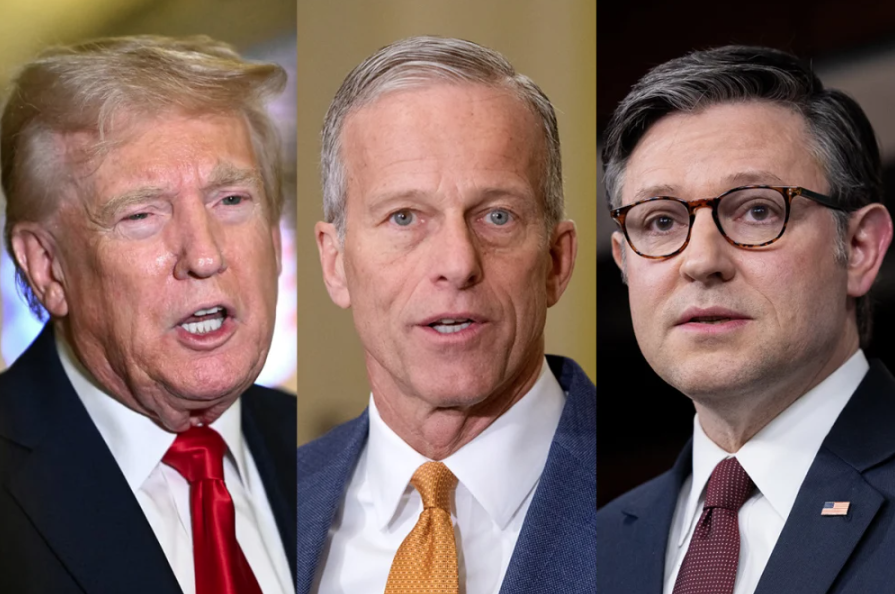
“Free and fair elections are the bedrock of our Constitutional Republic, and we’re confident in securing an ultimate victory in the courtroom,” he said in an email.
Aggressive moves to remake the board
Restricting who can access election machines and sensitive voting software has grown even more important to election officials in recent years following voting system breaches in states such as Colorado and Georgia. Trump allies had sought access to machines to find evidence that could back up the president’s claim that widespread fraud marred the 2020 election.
But election watchdogs and some Democratic election officials say activity by Trump and aligned groups since his return to the White House has raised fears of a broader effort to reshape elections.

Recent actions by the administration and its allies include:
- Trump signing an executive order in March that sought to force states to require proof of citizenship to register to vote and take “enforcement action” against states that accept mail ballots after Election Day. Federal judges have blocked parts of the executive order, noting that the power to regulate elections rests with the states and Congress, not the president.
- The Republican National Committee pushing to obtain voter registration records from states. On the day Trump signed the executive order, the RNC sent records requests to 48 states and Washington, DC, seeking information on how they maintain voter registration lists. And the RNC has sued New Jersey – home to a closely watched gubernatorial race this fall – alleging officials there have failed to respond to its requests for voter data and documents related to voting machine audits. A spokesperson for New Jersey’s elections division declined to comment on the litigation.
- The Justice Department asking more than a dozen states in recent weeks to provide voter lists, explain their procedures for removing potential ineligible voters from their rolls or discuss entering into information-sharing agreements to help the agency root out election fraud. The demands range from seeking copies of voting rolls in political battlegrounds such as Michigan to a broad request in Colorado to provide election records as far back as 2020.
- Republicans in Texas undertaking a rare mid-decade redistricting, following entreaties from Trump. A map released Wednesday by GOP lawmakers who control the state legislature aims to take over five additional Democratic seats, which would to give the GOP the edge in 30 of the state’s 38 congressional districts.
- The Republican-controlled House in April approving the SAVE Act, which mirrors parts of Trump’s executive order requiring proof of citizenship to register to vote. The proposed legislation also would make it a crime for election officials to mistakenly register someone to vote who has not provided proof of citizenship. Critics note that it’s already illegal for noncitizens to cast ballots in federal elections and say requiring proof of citizenship could disenfranchise eligible voters who lack the needed documents or changed their name through marriage.

To justify the redistricting in his state, Texas Gov. Greg Abbott cited a letter from Harmeet Dhillon, head of the Justice Department’s civil rights division, that challenged the legality of four existing congressional districts.
Dhillon said in a statement: “Clean voter rolls and basic election safeguards are requisites for free, fair, and transparent elections.”
She said the agency “has a statutory mandate to enforce our federal voting rights laws, and ensuring the voting public’s confidence in the integrity of our elections is a top priority of this administration.”
Trump has been blunt about his partisan goals in Texas, and he has suggested that other GOP-controlled states should pursue their own redistricting efforts – a move that threatens to set off an all-out redistricting war this year with Democrats in California and other Democrat-led states.
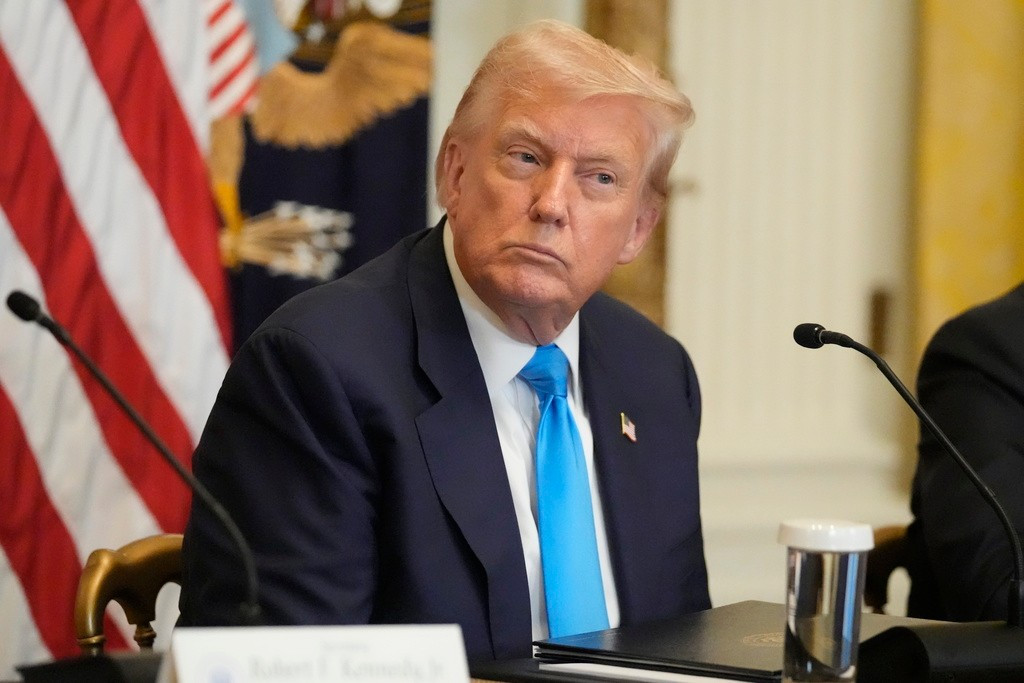
The administration’s recent actions have unsettled some election officials, who have endured years of threats and harassment following the 2020 election and the conspiracy theories about election fraud that flourished in its aftermath.
Election officials “are surfing on quicksand,” said David Becker, executive director and founder of the nonpartisan Center for Election Innovation & Research and a former DOJ voting rights attorney.
“They don’t know what the executive order means, if it has any meaning whatsoever,” he said. “They don’t know if they will be investigated just for having done their jobs. They don’t know if the vast power of the federal government is going to be weaponized against them. They don’t know if the Department of Justice is going to be suing them.”
Nearly 3 in 5 US local election officials are worried about political interference
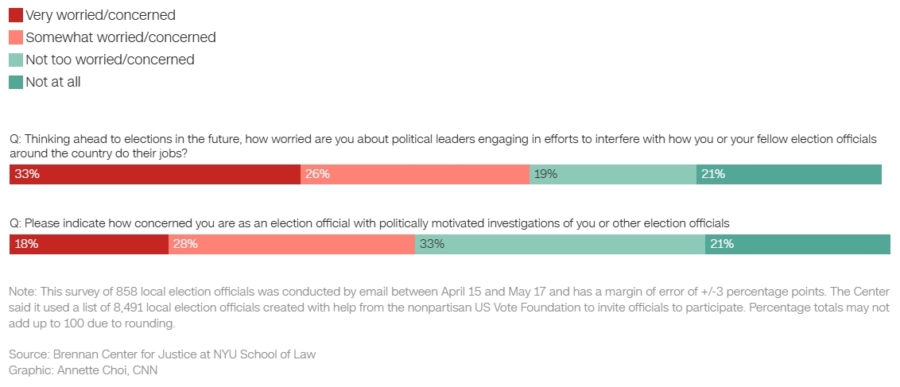
A recent survey of 858 local election officials by the liberal-leaning Brennan Center for Justice at New York University’s Law School bears that out. It found more than half of local election officials – 59% – say they are concerned about political leaders engaging in efforts to interfere with how election officials do their jobs. And 46% said they were concerned about politically motivated investigations of their work or that of their fellow election officials.
The fight over voting machines in Colorado
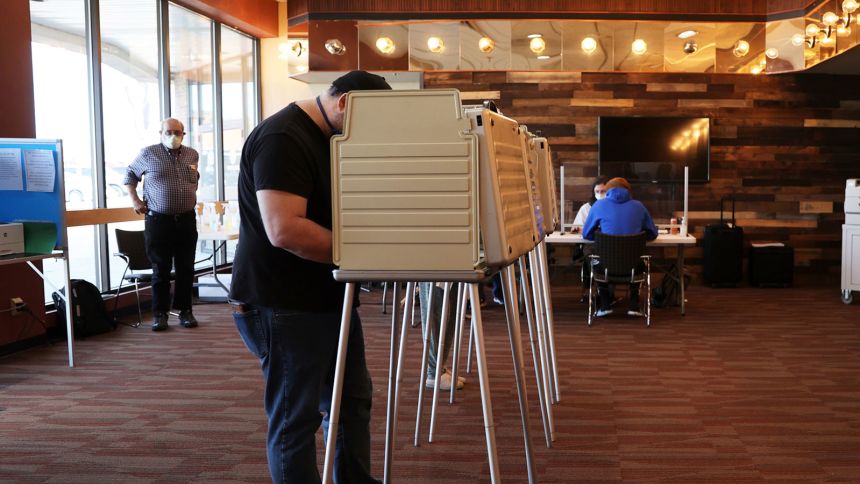
In early July, as previously reported by The Washington Post and media outlets in Colorado, Republican election clerks began receiving calls and texts from Small. Small, who has worked for Colorado GOP Rep. Lauren Boebert and for the US Interior Department during Trump’s first term, now is a principal with a Denver public affairs firm.
County officials interviewed by CNN said Small told them he was reaching out specifically to Republican clerks in blue states in a push to help advance Trump’s executive order.
Grantham, the election clerk in Fremont County, said Small’s outreach to only Republican officials was an early red flag during their conversation. Another concern arose, he said, when Small mentioned gaining access to the county’s election equipment.
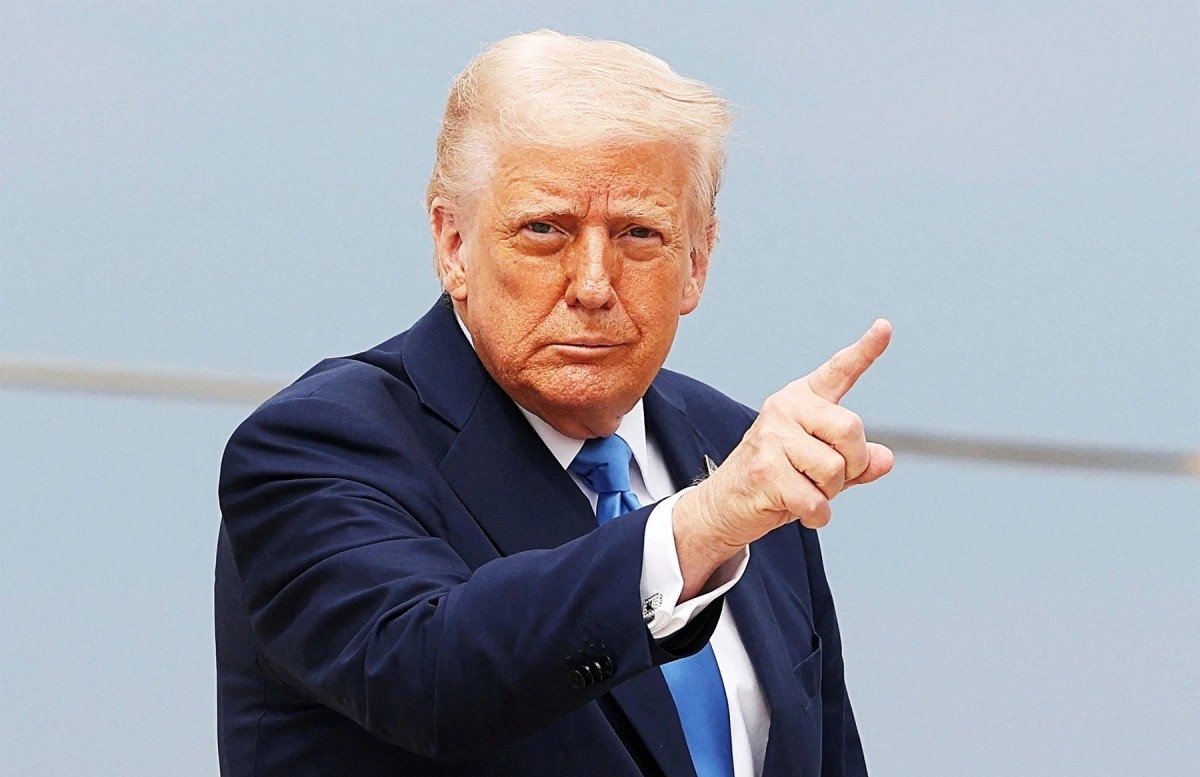
“My response was, ‘I didn’t believe that the president had the authority in the Constitution to write executive orders to affect elections and that until the Supreme Court found that he could, I would not let anybody access my voting equipment.”
CNN reached out to Small, and his attorney, Suzanne Taheri, responded to CNN’s inquiry. In a text, Taheri said Small’s outreach “supported efforts by allies in the administration to encourage officials to participate in President Trump’s election security executive order.”
He undertook the activity “on a volunteer basis, during his own free time, while on paternity leave,” she added. Neither Small nor Taheri answered questions about who exactly in the administration asked him to contact the clerks.
The White House distanced itself from Small’s actions in a statement.
“Jeff Small does not speak for the White House nor was he ever authorized to do official business on behalf of the White House,” a White House spokesperson said in an email to CNN.
Miller did not respond to CNN requests for comment.
The impact on local election officials
In Colorado, election officials say, there is heightened sensitivity around who can access election equipment, after the high-profile prosecution of former Mesa County elections clerk, Tina Peters. She became a celebrity among pro-Trump activists who have advanced false claims that voting machines had been rigged to flip votes from Trump to then-candidate Joe Biden in the 2020 election.
Many state laws set strict security standards for voting machines to prevent tampering with elections. Colorado has specifically barred third parties from accessing election equipment.

Last year, a judge sentenced Peters to nine years in prison after she was convicted on state charges for her role in a breach of her county’s election system as part of an unsuccessful hunt for fraud.
Trump and his administration have taken up Peters’ cause, however.
Earlier this year, the Justice Department said it was reviewing her case as part of a broad mandate from Trump to counter prosecutions it said were aimed at “inflicting political pain than toward pursuing actual justice.”
And in a social media post in May, the president weighed in personally, calling Peters an “innocent Political Prisoner” and directing the Justice Department to “to take all necessary action to help secure” her release.
Colorado Secretary of State Jena Griswold told CNN that her office has provided recent voter data to the Justice Department that’s generally available to the public.
But she said she declined to comply with a request related to records from the 2020 election because the federal government has no “legal basis” to seek it. Federal law only requires the preservation of election data in federal races for 22 months.

Griswold, a Democrat, said Trump’s recent actions demonstrate the president “is using the power of the federal government to undermine American elections and undermine voter confidence in them.”
In Colorado,a state Trump lost in all three of his White House bids, tensions over election administration remain high.
Koppes, the Republican clerk of Weld County, said she faced so many threats for her outspoken defense of the 2020 election results – and her county’s use of Dominion Voting machines – that she began to vary her routes to and from work, a practice she continues today.
Crane, the head of the clerk’s association, said it took a “lot of courage” for county clerks to rebuff the recent overtures, given the climate of suspicion and harassment that still persists. He noted that an elections office in southern Colorado housing Dominion machines was firebombed recently. No one was injured in the after-hours incident.
“The threats against election officials are very real,” he added.
The Trump administration takes a very Orwellian turn

Back in March, President Donald Trump signed an executive order targeted at the Smithsonian Institution that began as follows: “Over the past decade, Americans have witnessed a concerted and widespread effort to rewrite our Nation’s history, replacing objective facts with a distorted narrative driven by ideology rather than truth.”
Despite the high-minded rhetoric, many worried the order was instead a thinly veiled effort to rewrite history more to Trump’s liking. The order, for example, cited a desire to remove “improper ideology” – an ominous phrase, if there ever was one – from properties like the Smithsonian.
Those concerns were certainly bolstered this week. We learned that some historical information that recently vanished from the Smithsonian just so happens to have been objective history that Trump really dislikes: a reference to his two impeachments.
The Smithsonian said that a board containing the information was removed from the National Museum of American History last month after a review of the museum’s “legacy content.” The board had been placed in front of an existing impeachment exhibit in September 2021.
Just to drive this home: The exhibit itself is about “Limits of Presidential Power.” And suddenly examples of the biggest efforts by Congress to limit Trump’s were gone.

It wasn’t immediately clear that the board was removed pursuant to Trump’s executive order. The Washington Post, which broke the news, reported that a source said the content review came after pressure from the White House to remove an art museum director.
In other words, we don’t know all the details of precisely how this went down – including whether the removal was specifically requested, or whether museum officials decided it might be a good way to placate Trump amid pressure. The Smithsonian said in a statement Saturday that it was “not asked by any administration” or government official to remove content and that an updated version of the exhibit will ultimately mention all impeachment efforts, including Trump’s.
But it’s all pretty Orwellian. And it’s not the only example.
Trump has always been rather blatant about his efforts to rewrite history with self-serving falsehoods and rather shameless in applying pressure on the people who would serve as impartial referees of the current narrative. But this week has taken things to another level.
On Friday, Trump fired the commissioner of the Bureau of Labor Statistics. This came just hours after that agency delivered Trump some very bad news: the worst non-Covid three-month jobs numbers since 2010.
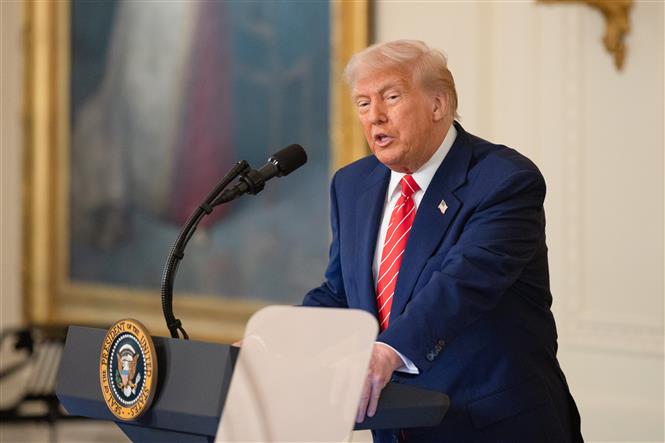
Some Trump allies have attempted to put a good face on this, arguing that Dr. Erika McEntarfer’s removal was warranted because large revisions in the job numbers betrayed shoddy work. But as he did with the firing of then-FBI Director James B. Comey eight years ago, Trump quickly undermined all that. He told Newsmax that “we fired her because we didn’t believe the numbers today.”
To the extent Trump did lay out an actual evidence-based case for firing McEntarfer, that evidence was conspiratorial and wrong, as CNN’s Daniel Dale documented Friday.
And even some Republican senators acknowledged this might be precisely as draconian and self-serving as it looked. Sen. Cynthia Lummis of Wyoming, for one, called it “kind of impetuous” to fire the BLS head before finding out whether the new numbers were actually wrong.
“It’s not the statistician’s fault if the numbers are accurate and that they’re not what the president had hoped for,” said Lummis, who is not often a Trump critic.

Sen. Thom Tillis of North Carolina added that if Trump “just did it because they didn’t like the numbers, they ought to grow up.”
Sens. Rand Paul of Kentucky and Lisa Murkowski of Alaska both worried that Trump’s move would make it so people can’t trust the data the administration is putting out.
And that’s the real problem here. It’s not so much that Trump appears to be firing someone as retaliation; it’s the message it sends to everyone else in a similar position. The message is that you might want that data and those conclusions to be to Trump’s liking, or else.
It’s a recipe for getting plenty of unreliable data and conclusions. And even to the extent that information is solid, it will seed suspicions about the books having been cooked – both among regular Americans and, crucially, among those making key decisions that impact the economy. What happens if the next jobs report is great? Will the markets believe it?
We’ve certainly seen plenty of rather blunt Trump efforts to control such narratives and rewrite history before. A sampling:
- He engaged in a yearslong effort to make Jan. 6 defendants who attacked the Capitol in his name out to be sympathetic patriots, even calling them “hostages,” before pardoning them.
- His administration’s efforts to weed out diversity, equity and inclusion from the government often ensnared things that merely celebrated Black people and women.
- He and his administration have at times taken rather dim views of the free speech rights of those who disagree with them, including talking about mere protests – i.e. not necessarily violence – as being “illegal.” A loyalist US attorney at one point threatened to pursue people who criticized then-Trump ally Elon Musk even for non-criminal behavior.
- Trump has repeatedly suggested criticism of judges he likes should be illegal, despite regularly attacking judges he doesn’t like.
- His term began with the portraits of military leaders who clashed with him being removed from the Pentagon. It also began with a massive purge of independent inspectors general charged with holding the administration to account.
All of it reinforces the idea that Trump is trying to consolidate power by pursuing rather heavy-handed and blatant tactics.
But if there’s a week that really drove home how blunt these efforts can be, it might be this one.
Biden warns ‘these are dark days’ under Trump administration

Former President Joe Biden warned on Thursday that the country is facing “dark days” under President Donald Trump’s watch, saying the executive branch “seems to be doing its best to dismantle the Constitution.”
“They’re doing it all too often with the help of a Congress that’s just sitting in the sidelines and enabled by the highest court in the nation. The rulings they’ve made, my God,” Biden said as he spoke at the National Bar Association’s annual gala in Chicago.
“Folks, in our lives, the life of our nation, there are moments so stark that they divide all that came before from everything that followed. Moments that forced us to confront hard truth about ourselves, our institutions and democracy itself,” he continued. “We are, in my view, at such a moment in American history, reflected in every cruel executive outreach, every rollback of basic freedoms, every erosion of long-standing established precedent.”
Biden never mentioned Trump by name, instead referring to him as “this guy,” and argued the American people are beginning to realize the need for judicial checks on the executive branch.
“Judges matter. Courts matter. The law matters and the Constitution matters. I think a lot of Americans are starting to realize that under the pressure we’re under now with this guy we have as president,” he said. “Oh, get ready, folks, this is just starting.”
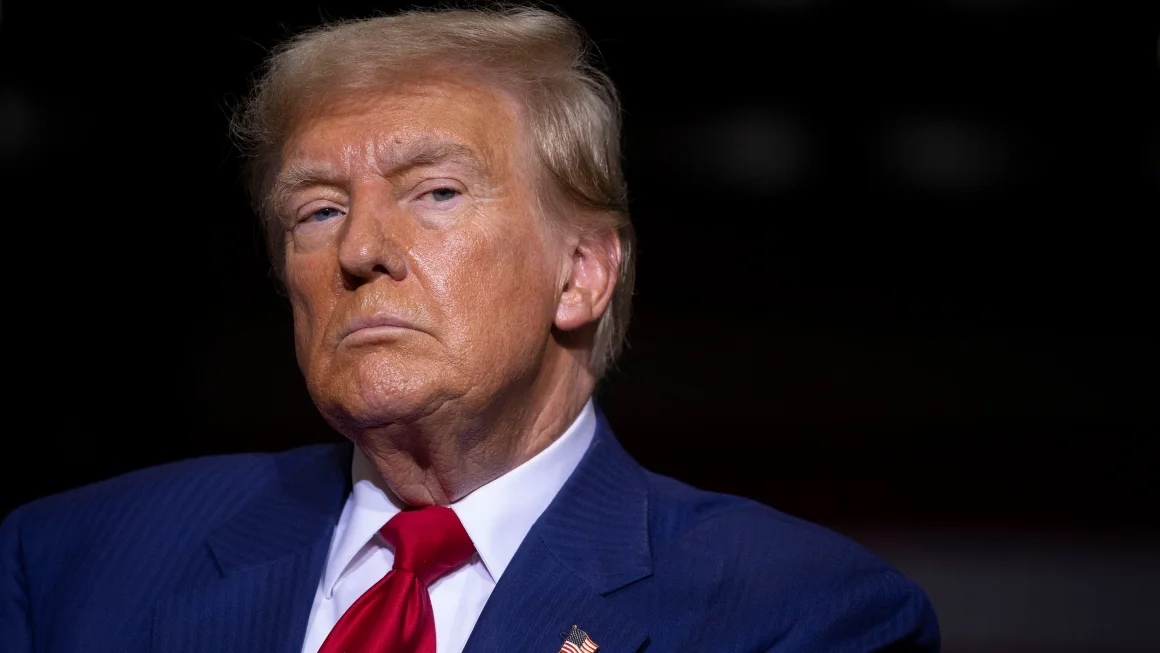
Biden called out “law firms bowing to pressure, bending to bullies, instead of staying rooted in justice and the law,” along with some of the biggest news outlets in the country. He also scorned “the apparent glee some of our politicians express” at the administration’s aggressive approach to immigration enforcement.
Biden said the current administration is intent on working to “ease all the gains we’ve made in my administration, to erase history, rather than make it, to erase fairness, equality, to erase justice itself.”
“Folks, we can’t sugarcoat this. These are dark days, but you’re all here for the same reason,” he said. “It’s because our future is literally on the line. We must, we must be unapologetic of fighting for the future.”
Biden’s latest speech comes the same week two senior aides appeared for interviews before the House Oversight Committee as part of the Republican-led panel’s intensifying investigation into the former president’s cognitive decline and possible efforts to conceal it from the public.
In his speech in Chicago, the former president joked about his age.
“I have the dubious distinction of being elected the youngest senator in American history and the oldest president in American history,” he said. “It’s hell turning 40 twice.”
The former president, who continues to undergo treatment for an aggressive form of prostate cancer, has kept a relatively low profile since leaving the White House, giving only a handful of speeches. He spends most of his time at his homes in Wilmington and Rehoboth Beach, Delaware, and is working on a forthcoming book.
As he closed out his speech, Biden encouraged Americans to “summon the courage” to stand up for what’s right.
“It means take the client who can’t write a big check, but needs protecting their basic fundamental rights. It means signing onto that brief that may draw the ire of people in power, but you know it’s the right thing to do,” he said. “It means standing firm against unconstitutional actions, designed to intimidate you. It means write the article, give the speech, lead the protest, defend the ideas your country is founded on, to protect your institutions, to fight for the soul of the nation.”






















:max_bytes(150000):strip_icc()/HarryLead-dc35cf6ca199421db3cd5fe42dbd7b01.jpg?w=1200&resize=1200,0&ssl=1)












:max_bytes(150000):strip_icc():focal(999x0:1001x2)/catherine-ohara-013026-7-4b5b413a646d4f15a1fd15ac8b933811.jpg?w=1200&resize=1200,0&ssl=1)







